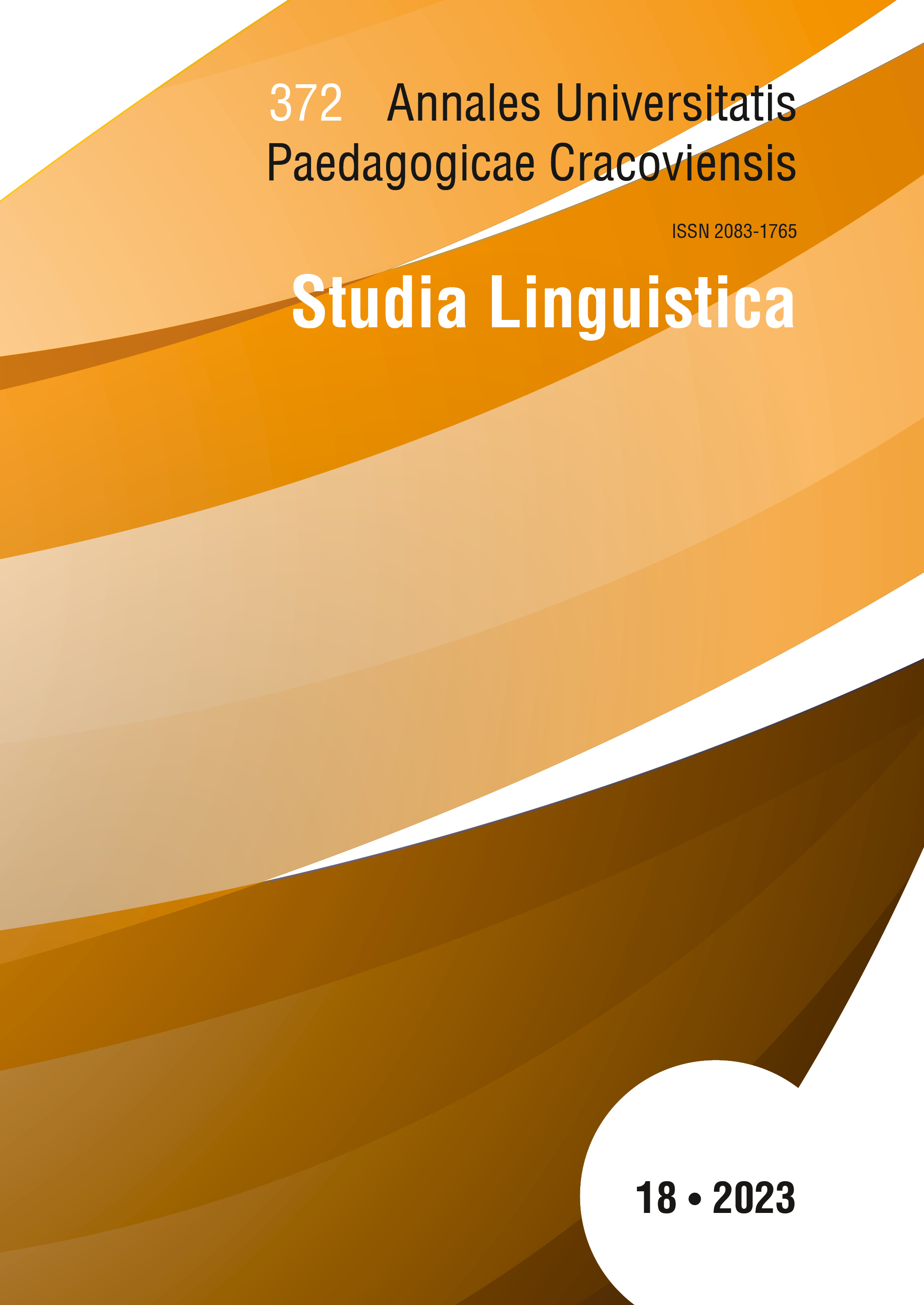Polish dialect kinship names according to the data in Volume 11. "Degrees of Kinship” of the Slavic Linguistic Atlas (preliminary results in a comparative perspective)
Main Article Content
Abstract
The article discusses data on kinship names in Polish dialects on the basis of an analysis of 82 linguistic maps and the comments to them from Volume 11. “Degrees of Kinship,” which has been prepared for publication by the Bulgarian National Commission as part of the lexical-word-formation series of the Slavic Linguistic Atlas. The language material is authentic, collected and verified on site by Polish dialectologists and includes terms for biological kinship and for relation by marriage and by matchmaking. Special attention is paid to the similarities and contrasts between Polish dialects and East and South Slavic dialects, on the one hand, and the Polish language and the other West Slavic languages, on the other. Emphasis is placed on kinship names that belong to the all- Slavic vocabulary, as well as the expansion of foreign language loanwords and elements that have completely replaced the native lexis. With nomina affinitatis, the disintegration of the old original naming system and the emergence of differences in the Slavic language territory can be traced. The research has employed linguo- geographical and comparative methods.
Downloads
Article Details

This work is licensed under a Creative Commons Attribution-NonCommercial-NoDerivatives 4.0 International License.
Author, submitting a text to the editorial board of the journal “Annales Universitatis Paedagogicae Cracoviensis. Studia Linguistica", certifies that the content of the article has not been published so far and that the work does not violate in any way the copyright or related rights of other person, as well as other rights of third parties, and that no one's rights to the work (or any part thereof) have been missed. After signing the contract, the property rights to the published materials are transferred to the University of the National Education Commission, Krakow.
“Annales Universitatis Paedagogicae Cracoviensis. Studia Linguistica” is an open access journal, and all its content is made available free of charge to users and institutions under the Creative Commons CC-BY-NC-ND 4.0 license (attribution, non-commercial use, no derivative works). Under this license, the authors agree that their work may be lawfully reused for any purpose, except for commercial purposes, without the prior consent of the author or publisher. Everyone can read, download, copy, print, distribute and process these works, provided that the author's marking and the original publication place are correct. Published texts may not be used to create derivative works (e.g. to translate and publish in another language without the consent of the publisher). This is in line with the BOAI (Budapest Open Access Initiative) definition. "Studia Linguistica" does not charge for submitting or processing articles.
References
Vendina, T.I., 2009, Russkie dialekty v obshcheslavyanskom kontekste, Moskva: Nestor–Istoria [Вендина, Т.И., 2009, Русские диалекты в общеславянском контексте, Москва: Нестор–История].
Google Scholar
Brückner, A., 1985, Słownik etymologiczny języka polskiego, Warszawa: Wiedza Powszechna.
Google Scholar
Tolstaya, S.M., 2009, Kategoriya rodstva v etnolingvisticheskoy perspective, [w:] Kategoriya rodstva v yazыke ikulyture. Biblioteka Instituta slavyanovedeniya, RAN, Moskva: Indrik,s. 7-22 [Толстая, С.М., 2009, Категория родства в этнолингвистической перспективе. – В: Категория родства в языке и культуре. Библиотека Института славяноведения РАН, Москва: Индрик, s. 7–22].
Google Scholar
Žigo, P., 2015, Tendencie v pomenovaní rodinných vzťahov v slovenčine, [in:] Dialog pokoleń w języku potocznym, w języku wsi i miasta, w literaturze, w publicystyce, w tekstach kultury, Warszawa: Towarzystwo Kultury Języka.
Google Scholar
